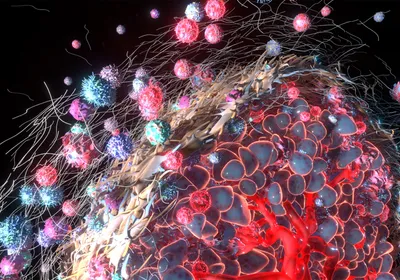 Duke Chapel at Duke UniversityWIKIMEDIA COMMONS, BJOERTVEDT
Duke Chapel at Duke UniversityWIKIMEDIA COMMONS, BJOERTVEDT
Last year, Duke oncologist Anil Potti admitted to having posed as a Rhodes Scholar and fabricating statistical analyses on how breast cancer responds to chemotherapy. Now, participants of clinical trials based partly on his research and families of participants who have died are suing the university and some Duke employees for "fraudulent and negligent behavior" for enrolling cancer patients in the trials, ScienceInsider reports.
The plaintiffs accuse Duke officials of knowing that Potti's work, as well as the research of cancer geneticist Joseph Nevins, former director of Duke's Center for Applied Genomics & Technology, was problematic when they began initiating the trials. According to the lawsuit, "In May 2007, after being placed on notice of the flawed science underlying its cancer studies as referenced above, ...






















